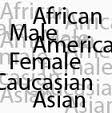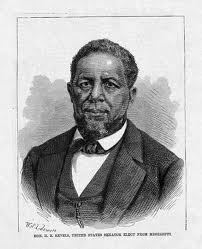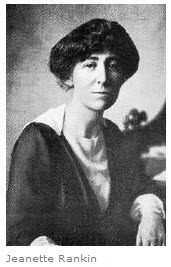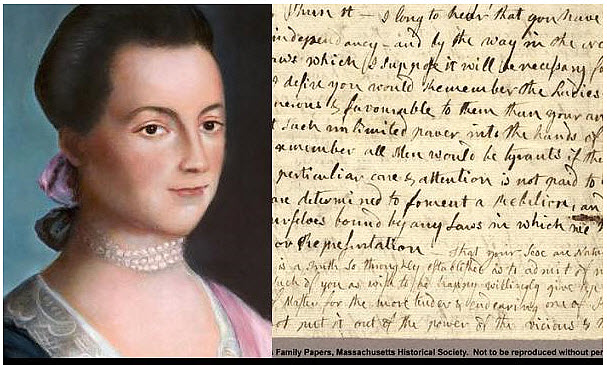By Craig Andresen on April 7, 2011
 Certainly there ARE those who allow race and gender to influence their political decisions as well as their votes. I suspect they are also people who allow such things to influence their daily lives. Both, I believe, men and women, fall into this demographic.
Certainly there ARE those who allow race and gender to influence their political decisions as well as their votes. I suspect they are also people who allow such things to influence their daily lives. Both, I believe, men and women, fall into this demographic.
Such are people who believe a woman is not as competent, not as strong, not as qualified as would be a man in the workplace, on the battlefield or in elected office. Such people, I suspect would also base their friendships on race. Oh yes, they would outwardly claim they have friends of different ethnicities, or claim they believed in a much more equal standard between men and women but a close look at their behavior would tell a different story.
In a political world, these are the people who would base their vote on gender, preferring a man over a woman and a person of their own race over that of any other race. They would tell you that they do not care but, they do.
While white people are generally believed to be more racially motivated they are not exclusive to the club.
They would be wrong and history would show as much.
 Hiram Rhodes Revels was the first black man to serve in congress as a senator, in 1869, filling the seat vacated by Confederate President Jefferson Davis. A black man becoming a southern senator within just a few years of the end of the civil war. One should also not put aside the astounding contributions from those days of Frederick Douglas, a former slave, who, while not an elected official, did amazing work in shaping the political landscape of the day.
Hiram Rhodes Revels was the first black man to serve in congress as a senator, in 1869, filling the seat vacated by Confederate President Jefferson Davis. A black man becoming a southern senator within just a few years of the end of the civil war. One should also not put aside the astounding contributions from those days of Frederick Douglas, a former slave, who, while not an elected official, did amazing work in shaping the political landscape of the day.
Many would say these men achieved their place in our history in spite of their race. I disagree. They achieved their place because they believed they could and their brilliance allowed for it.
In the political theater, there are simply too many names of those other than white men to list who have played an important role. While I have not always agreed with their politics and in many cases, have not held them in respect, it is not because they were other than MY racial equivalent it is because my political beliefs or my values differed from theirs.
To claim I am color blind in regard to race would be a false statement. When I see a person of a different race than my own, that is exactly what I see. It is a visual observation. I expect they make the same visual observation regarding my appearance. If they choose to infer upon that simple observation that I, in my behavior, will be this way or that, whether or not they will engage me in conversation or not, if I am of a particular religious belief or any of a number of other possibilities, that is their choice.
 As for gender, Jeannette Rankin was the first woman elected to congress back in 1916 and it should be noted, the first woman elected to a national legislature in any western democracy however, to see the earliest impact of women on politics in this country, one would need to recognize Deborah Sampson as she was the only woman known to have fought in the revolutionary war paving the way to create this country to begin with. One should also remember the words of Abigail Adams who, in 1776 wrote to her husband John Adams, “And, by the way, in the new code of laws which I suppose it will be necessary for you to make, I desire you would remember the ladies and be more generous and favorable to them than your ancestors. Do not put such unlimited power into the hands of the husbands.”
As for gender, Jeannette Rankin was the first woman elected to congress back in 1916 and it should be noted, the first woman elected to a national legislature in any western democracy however, to see the earliest impact of women on politics in this country, one would need to recognize Deborah Sampson as she was the only woman known to have fought in the revolutionary war paving the way to create this country to begin with. One should also remember the words of Abigail Adams who, in 1776 wrote to her husband John Adams, “And, by the way, in the new code of laws which I suppose it will be necessary for you to make, I desire you would remember the ladies and be more generous and favorable to them than your ancestors. Do not put such unlimited power into the hands of the husbands.”
John Adams, for all his greatness, fell into the demographic of those who could NOT see passed the gender issue when he replied, “As to your extraordinary code of laws, I cannot but laugh…Depend upon it, we know better than to repeal our masculine systems.” And the proof of his bias can be found forever enshrined in the words, “…that all men are created equal…”
Our history as a nation and indeed world history is so replete with figures of both genders and a wide spectrum of races being astute leaders of politics it would require volumes in which to list. The purpose of this piece however deals with the here and now.
 As we stare another election cycle squarely in the eye, neither race nor gender should be allowed to predetermine our vote. There are those who have said, both from the right and the left, that Barak Obama has galvanized the voting public in such a way that it will be quite some time before another black man (and I suspect anyone other than a white individual) can be elected to our highest office. I have heard the same regards toward women expressed because of the perceived negatives of Sarah Palin.
As we stare another election cycle squarely in the eye, neither race nor gender should be allowed to predetermine our vote. There are those who have said, both from the right and the left, that Barak Obama has galvanized the voting public in such a way that it will be quite some time before another black man (and I suspect anyone other than a white individual) can be elected to our highest office. I have heard the same regards toward women expressed because of the perceived negatives of Sarah Palin.
The list of African Americans who have been presidential candidates before Barak Obama is long.
1960 Attorney Frank R Beckwith Civil Rights leader from Indianapolis, “Favorite Son of Indiana” was the first African American ever to be nominated by his home state to become a National Convention Presidential candidate. He was a Republican and made a second bid for President in 1964.
- 1960 Clennon Washington King, Jr. ran for President representing the Afro-American party
- 1964 Jazz great Dizzy Gillespie ran for President
- 1964 Clifton DeBerry ran for President representing the Socialist Party – he ran again in 1980
- 1968 Charlene Mitchell ran for President as a Communist Party candidate
- 1968 Comedian Dick Gregory ran for President as a write-in candidate with the Freedom and Peace party
- 1968 Eldridge Cleaver ran for President representing the Peace and Freedom party but was ruled ineligible because of his age
- 1972 Shirley Chisholm (first African American Congresswoman) ran for President
- 1972 Water E Fauntroy (U.S. Congressman) ran for President
- 1980 Clifton DeBerry
- 1984 & 1988 Reverend Jesse Jackson (Civil Rights Activist with Martin Luther King, Jr.) ran for President
- 1984 & 1988 Larry Holmes was the Workers World Party candidate for President
- 1984, 1992, 1996, 2000 Isabell Masters ran for President as a Looking Back Party candidate
- 1988 Lenora Fulani (a psychologist and social activist) ran for President and was the first African American to be on the ballot in all 50 states
- 1992 Joan Jett Blakk (a.k.a.) Terence Smith was a Queer Nation Presidential candidate
- 1992 Ronald Daniels (political activist) was a Peace and Freedom party candidate for President
- 1992 Helen Halyard ran for President representing the Socialist Equality party
- 1996 & 2000 Alan Keyes (a former diplomat) ran for President
- 1996 & 2000 James Harris was the Socialist Workers party Presidential candidate
- 1996 & 2000 Monica Moorehead was a Workers World Party candidate for President
- 2004 Carol Moseley Braun (first African American female senator) ran for President
- 2004 Reverend Al Sharpton (Civil Rights Activist) ran for President
- 2004 John Parker was Communist Party candidate for President
- 2008 Elaine Brown, former chairperson of the Black Panther Party, ran for President with the Green Party
- 2008 Cynthia McKinney, (U.S. Congresswoman) was the Green Party’s Presidential nominee
 The list of women who have run for the presidency goes back much farther than one would imagine starting with Victoria Woodhull back in 1872. The entire list can be found here: http://bit.ly/fcJtn4
The list of women who have run for the presidency goes back much farther than one would imagine starting with Victoria Woodhull back in 1872. The entire list can be found here: http://bit.ly/fcJtn4
No doubt, racial and gender bias played a significant role in politics throughout most of our history but I believe the vast majority of Americans have left those exclusionary feelings behind. While there are certainly those who embrace those outdated extremes, they will be left behind.
Many would want to make a case that the republican party clings harder to those feelings of racial or gender bias than do the democrats but that too, I believe, is wrong. The proof can be seen in those elected in the recent midterm elections. Provide the right message and a history of leadership and the republicans have and will elect to office candidates regardless of demographics.
I contend that it is the message not the messenger, the actions of the individual rather than the demographic of the individual and their (whether men or women and regardless of ethnicity) values, platforms, ideals, ideologies, potential for leadership, history of leadership and their approach to the constitution which should be and IS taken into account.
What is needed in this next election cycle is a closer look at the message instead of the bumper sticker. It was not the democrats who put the first black man in the white house it was the independents and they didn’t cast their votes based either on Obama’s racial demographic or due to a close examination of his values, platform, message, ideals or proven leadership rather, they bought the slogan.
Of course that is not to say that a large number of voters in a racial demographic other than white did not vote for Obama along color lines, clearly some did but I suspect, as most in that category find themselves in the same political party as Obama they would have voted for the party nominee regardless of color.
While we are now seeing more racial diversity among voters and party affiliation that we have at any time in the past and more diversity in candidates in the republican party than ever before, there is a long ways to go on either front before the lines blur out.
There is now a freshman in congress who not only embodies what I consider to be the proper ideals but leads that way. Congressman Allen West believes as do I that color should not be political in nature. Read a statement he released on April 6th 2011 regarding the Congressional Black Caucus:
(WASHINGTON) —- Congressman Allen West (FL-22) released this statement today on the Congressional Black Caucus:
 “Congressional Black Caucus Chairman Emanuel Cleaver II released a statement yesterday that utterly disappointed me. The statement- referencing the Republican budget proposal- came one day after the CBC whipped “Yes” on my first piece of legislation, HR 1246- a bill that passed unanimously 393-0.
“Congressional Black Caucus Chairman Emanuel Cleaver II released a statement yesterday that utterly disappointed me. The statement- referencing the Republican budget proposal- came one day after the CBC whipped “Yes” on my first piece of legislation, HR 1246- a bill that passed unanimously 393-0.
The CBC should be a bi-partisan body politic and not the place for empty emotional rhetoric, nor a platform for the Democrat party. As the “Conscience of the Congress,” the CBC must show concern for the failed economic policies which have led to record debt and deficits. We should be aware of a void in visionary leadership which has resulted in national unemployment hovering at above 9 percent, at 11 percent in my home state of Florida, and exorbitantly higher in the black community. America finds itself contending with a misguided healthcare law resulting in higher insurance premiums, cuts to Medicare, the creation of 159 government agencies and bureaucracies, and more than 1,100 granted waivers to special interests.
The recent reckless spending policies and fiscal irresponsibility of the 110th and 111th Congress’ pose the greatest threat to our national security, our free market system, and the future of this constitution and republic for our children and grandchildren. And let us not forget that 60 percent of combat fatalities in Afghanistan have come under the current Commander-in-Chief.
These are the facts. This is a new day for the CBC, one of critical objective analysis and assessment, not partisan hyperbole.
If we, the CBC, are the “Conscience of the Congress,” then let us no longer suffer from amnesia. ”
Though West has not, at this point, indicated that he is thinking of the white house, he has not closed the door and has indicated he would NOT be opposed to being included on a ticket as VP. This has the possibility of opening new doors in American politics as one can not discount the possibility of some combination of West, Cain, and Bachmann.
In matters of racial or gender equality, whether in politics or generally in life, I have always chosen not to participate as to me, it presents a sense of disservice to those whom it is deemed to apply. I AM a proponent of both racial and gender indifference.
It is NOT whether we choose a male candidate or a female candidate, a black candidate or a white candidate that will determine our future but whether or not we choose the RIGHT candidate.





